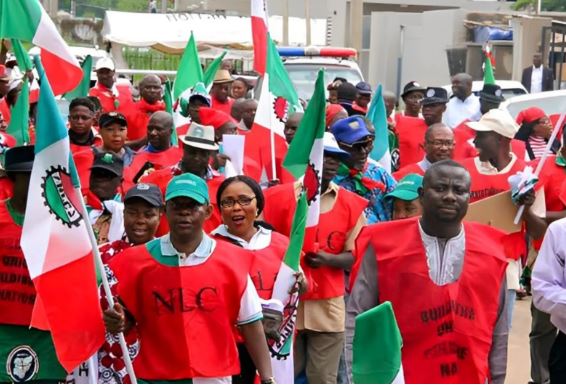The Nigeria Labour Congress (NLC) has announced plans for a two-day nationwide protest on February 27-28 to voice discontent over mounting economic challenges facing the country’s workers.
This was contained in a communique issued by NLC President Joe Ajaero on Friday after a meeting by the National Executive Committee.
NLC National President Joe Ajaero stated the demonstrations would commence exactly one week after the expiration of a 14-day ultimatum issued earlier this month to the federal government led by President Bola Tinubu.
The NLC leveled demands ranging from wage increases to improved access to utilities while accusing the administration of reneging on pledges to cushion the impact of recent economic reforms.
“The Federal Government should not take this ultimatum lightly as it expires on February 23,” Ajaero cautioned at a press briefing in Abuja. “We have put machinery in place for effective mobilization across the 36 states of the federation and Abuja to ensure the protests are successful.”
The planned protests reflect growing anger among Nigeria’s labor unions over reforms tied to soaring inflation, currency volatility and declining living standards. Foremost among the contentious policies was Tinubu’s decision last May to eliminate subsidies for gasoline and other petroleum products that kept pump prices artificially low for decades.
The subsidy elimination allowed fuel marketers to immediately increase prices to reflect supply costs, with petrol rising beyond 200% in mere months. Tinubu argued the costly program drained Nigeria’s finances while enriching only a corrupt few, but unions blame the move for inflicting economic pain on regular citizens.
Compounding matters was the central bank’s lifting of foreign exchange restrictions in December 2022, causing the naira to devalue more than 30% against the dollar practically overnight. The currency weakness fanned rising costs for imported food, manufactured goods and raw materials.
At the NLC’s emergency meeting of union leaders earlier this month, Ajaero accused the government of “transferring the burden of fiscal indiscipline and corruption in high places to the Nigerian people.” The labor coalition lamented that millions now face hunger and eroding purchasing power due to the reforms.
With inflation hitting 21% in January, the NLC demands immediate implementation of a new minimum wage above the current rate of N30,000 ($68) monthly. Unions also want urgent steps to revamp Nigeria’s decaying refineries and boost domestic fuel production to lower petrol costs.
Absent government efforts to address those concerns by February 23, the NLC will mobilize street demonstrations in Abuja, Lagos and other major cities to pressure Tinubu. The protests may evolve into indefinite strike actions if demands remain unmet, union officials have hinted.
Tinubu faces a delicate balancing act responding to the labor backlash while still implementing difficult fiscal reforms. With Nigeria’s economy projected to grow just 2.9% this year, painful choices loom for the president and disgruntled workers alike.









